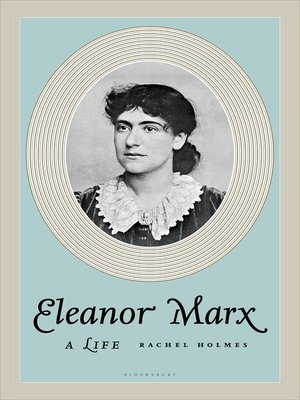
Sign up to save your library
With an OverDrive account, you can save your favorite libraries for at-a-glance information about availability. Find out more about OverDrive accounts.
Find this title in Libby, the library reading app by OverDrive.



Search for a digital library with this title
Title found at these libraries:
| Loading... |
Unrestrained by convention, lionhearted and free, Eleanor Marx (1855–98) was an exceptional woman. Hers was the first English translation of Flaubert's Madame Bovary. She pioneered the theater of Henrik Ibsen. She was the first woman to lead the British dock workers' and gas workers' trade unions. For years she worked tirelessly for her father, Karl Marx, as personal secretary and researcher. Later, she edited many of his key political works and laid the foundations for his biography. But foremost among her achievements was her pioneering feminism. For her, gender equality was a necessary precondition for a just society, and she crusaded for this in Britain and on a celebrated tour across America in 1886.
Drawing strength from her family and their wide circle, including Friedrich Engels and Wilhelm Liebknecht, Eleanor Marx set out into the world to make a difference. Her favorite motto: "Go ahead!" With her closest friends—among them Olive Schreiner, Havelock Ellis, George Bernard Shaw, Will Thorne, and William Morris—she was at the epicenter of British socialism. She was also the only Marx to claim her Jewishness. But her life contained a deep sadness: She loved a faithless and dishonest man, the academic, actor, and would-be playwright Edward Aveling. Yet despite the unhappiness he brought her, Eleanor Marx never wavered in her political life, ceaselessly campaigning and organizing until her untimely end.
Rachel Holmes has written a dazzling and original portrait of one of the most remarkable women of the nineteenth century.
Drawing strength from her family and their wide circle, including Friedrich Engels and Wilhelm Liebknecht, Eleanor Marx set out into the world to make a difference. Her favorite motto: "Go ahead!" With her closest friends—among them Olive Schreiner, Havelock Ellis, George Bernard Shaw, Will Thorne, and William Morris—she was at the epicenter of British socialism. She was also the only Marx to claim her Jewishness. But her life contained a deep sadness: She loved a faithless and dishonest man, the academic, actor, and would-be playwright Edward Aveling. Yet despite the unhappiness he brought her, Eleanor Marx never wavered in her political life, ceaselessly campaigning and organizing until her untimely end.
Rachel Holmes has written a dazzling and original portrait of one of the most remarkable women of the nineteenth century.






